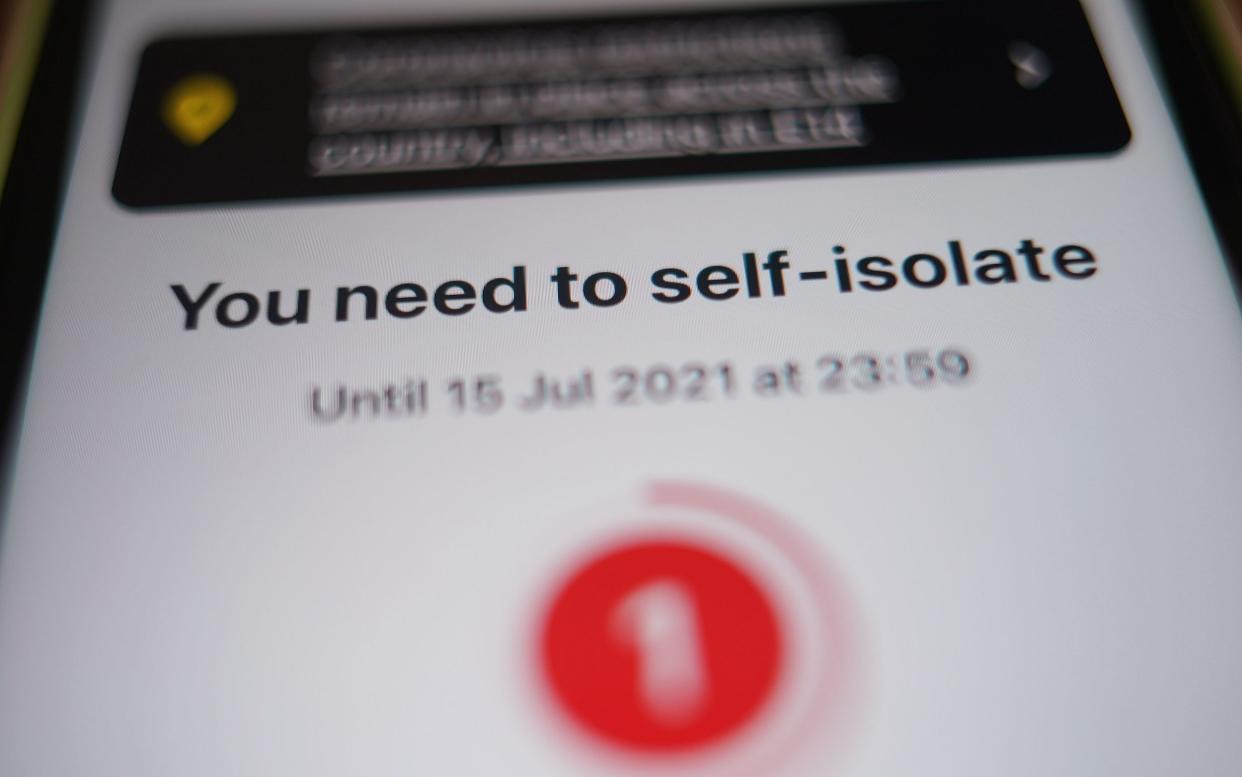Covid app tweaked to alert fewer people and end ‘pingdemic’ chaos

The NHS app has been updated so that fewer people will be asked to self-isolate in a government U-turn designed to end the disruption caused by the "pingdemic".
Under new programming, only those who have been in contact with an asymptomatic case in the past 48 hours will be pinged.
Previously, the app traced contacts back five days for both symptomatic and asymptomatic infections, even though previous studies have shown that people become infectious one to two days before the onset of symptoms and are unlikely to spread the virus earlier.
Around one in three people who catch Covid are asymptomatic, which means up to one fifth of pings could be prevented by the change.
Sajid Javid, the Health Secretary, said: "We want to reduce the disruption that self-isolation can cause for people and businesses while ensuring we're protecting those most at risk from this virus.
"This update to the app will help ensure that we are striking the right balance. It's so important that people isolate when asked to do so in order to stop the spread of the virus and protect their communities."
Last week, the NHS app sent a record 689,313 alerts, with business complaining that they were struggling to operate because so many staff were being asked to stay at home.
NHS Test and Trace also identified 600,000 people, meaning more than one million may have been told to self-isolate in the previous week.
In the past fortnight, the Government had insisted there was no prospect of the app being changed, but has come under increasing pressure from businesses. Last week, 13 per cent of people working in the hospitality sector were isolating.
Kate Nicholls, the chief executive of UKHospitality, welcomed the move but warned that ministers may have to tweak the app further.
"There has been a loss of confidence in the app because of the pingdemic," she warned. "We are still seeing large numbers [working in hospitality] being pinged and having to self-isolate. It may be too late to save some businesses that will have to close for a period of time."
The update does not change the sensitivity of the app nor change the risk threshold and, if pinged, people must self-isolate for 10 days – even those who have been double jabbed or test negative.
The Department of Health has continued to defend the technology, arguing that the app averted 50,000 cases in the first three weeks of July, preventing 1,600 hospitalisations.
Dr Jenny Harries, the chief executive of UK Health Security Agency, said: "The NHS Covid-19 App is a really practical example of how technology can be used to fight the biggest challenges we face in protecting and improving our health.
"The app is the simplest, easiest, and fastest way to find out whether you have been exposed to the virus, and it has saved thousands of lives over the course of this pandemic. I strongly encourage everyone, even those fully vaccinated, to continue using the app."
From August 16, fully vaccinated contacts in England will be exempt from isolation and will instead be advised to take a PCR test. Those who are not fully vaccinated will still be required to isolate, and it will remain a legal obligation to isolate if you test positive for Covid.

 Yahoo News
Yahoo News 
